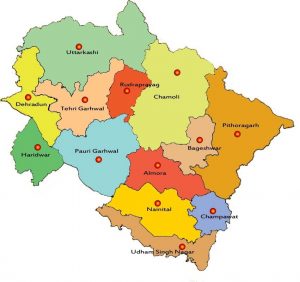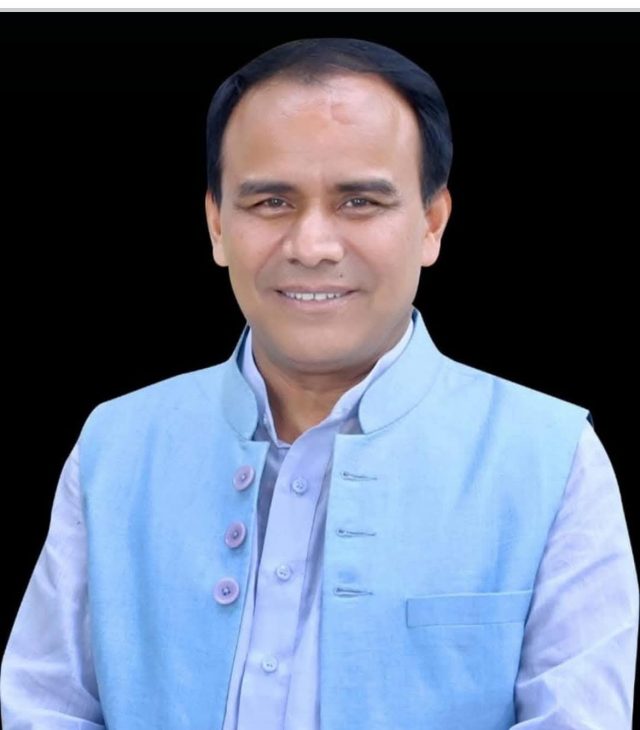Garhwal Post Bureau
Dehradun, 4 Nov: Since the formation of the state, the Department of Cooperation has played a crucial role in strengthening the rural economy. Over the past 25 years, several significant and impactful schemes have been implemented through cooperative institutions to empower farmers, women, cultivators, artisans, and youth — effectively helping to curb migration. At the same time, cooperative institutions have been made more organized, extensive, and transparent.
All Primary Agricultural Credit Societies (PACS) in the state have been fully computerized, ensuring that the benefits of cooperation reach ordinary people. Innovative schemes like the Chief Minister Ghasyari Welfare Scheme and the Madhav Singh Bhandari Cooperative Collective Farming Scheme have given the cooperative movement the form of a people’s campaign.

Administrative Reforms in Cooperation
At the time of state formation, there were 528 sanctioned posts in the Cooperation Department, which has now increased to 607. Similarly, the number of cooperative societies has grown from 1,800 to 6,346, and the branches of district cooperative banks have increased from 207 to 330. The number of apex cooperative institutions has also risen from 3 to 14.
At present, there are 672 PACS societies providing the benefits of cooperative schemes to the general public. In addition, several historic administrative and legal reforms have been made, including the establishment of the Cooperative Institutional Service Board, Cooperative Tribunal, and Cooperative Election Authority.
Transparent Recruitment and Human Resource Empowerment
After the formation of the state, qualified personnel were recruited through a transparent selection process. For the first time in 2018–19, the government conducted competitive examinations through the IBPS (Institute of Banking Personnel Selection) for recruitment in District and Apex Cooperative Banks, resulting in the appointment of 597 candidates to Class I, II, and III positions. Recruitment for 177 additional posts is currently proposed.
Moreover, 475 employees have been appointed through direct recruitment, state agitator quota, and dependant-of-deceased-employee quota.
Interest-Free Loans Benefit 1.1 Million People
Under the Deendayal Upadhyay Cooperative Farmer Welfare Scheme, launched in 2017, a total of Rs 6,957.88 crore in interest-free loans has been distributed up to September 2025 to 11,34,434 beneficiaries and 6,413 self-help groups — a record achievement.
The scheme provides interest-free loans up to Rs 1 lakh for agricultural activities, Rs 3 lakh for non-agricultural purposes, and Rs 5 lakh for self-help groups, aimed at doubling farmers’ income.
Increase in Procurement of Farmers’ Produce
Through the Uttarakhand State Cooperative Federation, farmers’ produce is being procured across the state, providing them with fair returns.
Via 239 procurement centres, 67,171.92 quintals of millets have been purchased from local farmers, with payments totalling Rs 26.52 crore made directly to them.
Women Freed from the Burden of Fodder
To free women in remote hilly areas from the burden of collecting fodder, the Chief Minister Ghasyari Welfare Scheme provides subsidized packed silage and total mixed cattle feed through 182 cooperative societies in 11 districts. Approximately 5,55,582 metric tons of silage have been distributed, benefitting 54,000 women.
Collective Farming Revives Fallow Lands
The Madhav Singh Bhandari Cooperative Collective Farming Scheme has become a model initiative. It has transformed fallow lands — left unused due to migration — into cultivable fields.
Currently, 24 cooperative societies across all 13 districts are engaged in joint cooperative farming with around 2,400 farmers, cultivating a total of 1,235 acres of land.
Supplying Local Produce to ITBP and Armed Forces
Under the Vibrant Village Scheme, members of federations and cooperatives are supplying local products — such as live goats, sheep, poultry, trout fish, fruits, and vegetables — at fair prices to Indo-Tibetan Border Police (ITBP) units and the Indian Army stationed in the state, realizing the vision of “Vocal for Local.”
“Sankalp Se Siddhi”
Following Prime Minister Narendra Modi’s Sankalp Se Siddhi mantra, the State Integrated Cooperative Development Project is being implemented through the NCDC (National Cooperative Development Corporation).
This project covers four sectors — cooperation, fisheries, sheep & goat rearing, and dairy development — benefiting nearly 50,000 farmers directly and indirectly.
Digitization of 670 PACS Societies
To modernize cooperative institutions, 100% of PACS societies across the state have been computerized. Inspired by Uttarakhand’s successful PACS computerization model, the Ministry of Cooperation, Government of India has launched a Centrally Sponsored PACS Computerization Scheme across all states and union territories.
Enhanced Facilities at PACS Societies
PACS societies now provide several citizen services.
Some Multi-Purpose PACS (MPACS) are being developed as Jan Aushadhi Kendras (Generic Medicine Centers) — currently 23 MPACS function as such centres. Additionally, 650 cooperative societies serve as Common Service Centres (CSCs), offering government services in villages.
Furthermore, 478 PACS have established Pradhan Mantri Samriddhi Kendras to supply fertilizers to farmers.
30% Reservation for Women
To make women self-reliant and aware of their rights and responsibilities within cooperatives, 33% reservation has been granted to women for management committee and chairperson positions in cooperative societies and banks — a historic achievement in women’s empowerment.
Reduction in Cooperative Banks’ NPAs
Due to robust strategies and transparent operations, the Net NPAs of cooperative banks in the state have significantly decreased — from Rs 4,838.16 lakh at the time of state formation to Rs 690.30 lakh in 2025. Efforts are ongoing to further reduce NPAs.
“The state government is developing cooperation as a people’s movement by ensuring transparency, accountability, and good governance in the functioning of cooperative institutions. Through cooperation, we are determined to achieve the goal of a self-reliant Uttarakhand,” asserts Dr Dhan Singh Rawat, Minister of Cooperation, Uttarakhand.








